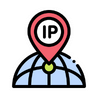What is DNS, and Why is it Important?
November 26th, 2021 | 4 min. read

Your business has gotten along fine without knowing much about what DNS is or what it does. You probably didn't care too much about it. That was true until October 2021, when Facebook experienced a DNS error which brought on the longest stretch of downtime it ever had since 2008. Suddenly, many business owners like yourself started asking, "What is DNS?"
That might be how you found this article in the first place. It's because you want to know more about DNS and why it's so important that it can bring down even the biggest online platforms on the planet.
At ITS, we've helped hundreds of our clients manage and understand technology. That's because we believe that the more you understand, the better decisions you can make for your business. To do that, we spoke with Peter Swarowski, Director of Operations at Intelligent Technical Solutions, to help explain what DNS is and why it matters.
In this article, we'll answer the following questions:
- What is DNS?
- How does DNS work?
- Why is DNS important?
What is DNS?
DNS or Domain Name System is one of the most important aspects of the internet and has helped shape how we know it today. It's a lot like a phonebook for the internet. It is a large network of servers located across the globe that contain a distributed database of domain names and IP addresses. It's responsible for matching the right domain name with its corresponding IP address.
Domain Name
 A domain name is the name of your website, for example, itsasap.com. It can either be purchased through a domain registrar or provided for free via a hosting provider. Domain names help make the internet easier to navigate as they are typically human-readable words and letters instead of long strings of numbers.
A domain name is the name of your website, for example, itsasap.com. It can either be purchased through a domain registrar or provided for free via a hosting provider. Domain names help make the internet easier to navigate as they are typically human-readable words and letters instead of long strings of numbers.
IP Address
 An IP address is a unique group of numbers separated by full stops, which looks a little like this: 192.168.1.89. Each computer or server has its own IP address allowing them to communicate over the network. As machines are better at dealing with numbers, it just makes sense that they are identified that way. However, it can be difficult for us to remember a string of numbers every time we connect to the internet.
An IP address is a unique group of numbers separated by full stops, which looks a little like this: 192.168.1.89. Each computer or server has its own IP address allowing them to communicate over the network. As machines are better at dealing with numbers, it just makes sense that they are identified that way. However, it can be difficult for us to remember a string of numbers every time we connect to the internet.
DNS Server
 DNS Servers are computer servers specifically used to translate domain names to IP addresses, making it possible for DNS clients to reach the origin server.
DNS Servers are computer servers specifically used to translate domain names to IP addresses, making it possible for DNS clients to reach the origin server.
DNS Hosting Service
 A DNS hosting service is responsible for running DNS servers. They typically include domain name registrars who offer their hosting services with registration.
A DNS hosting service is responsible for running DNS servers. They typically include domain name registrars who offer their hosting services with registration.
How Does DNS Work?
The way DNS works are pretty straightforward. When you type a website's URL in your browser, It helps you connect the domain name with the right IP address. That process is called Domain Name Resolution.
"Let's say you need to go to Facebook, So you type: 'facebook.com' on your browser," Swarowski said. "You're not connecting to a service that is specifically facebook.com. There's a DNS resolution that says facebook.com is located at this IP address. Your computer will then connect to that address on a specific service port and then load the Facebook web page," he explained.
Why is DNS Important?
For many of us, connecting to the internet is as easy as striking a few keys on your keyboard or tapping on some letters on your smartphone. We can connect to a seemingly endless amount of internet services within seconds. That's all thanks to DNS.
DNS ensures the internet is not only user-friendly but also works smoothly, loading whatever content we ask for quickly and efficiently. It's one of the cornerstones of how the internet operates. Without it, we'd be stuck memorizing long lists of numbers (IP addresses) to access the content we want. If a DNS cannot translate the domain name with the right IP address, you won't be able to access the website you're looking for.
In addition, let's say you've memorized the IP addresses of the websites or services you most frequently visit. What would happen then if the owners of those IP addresses decide to change them? Suddenly the IP address you've memorized will no longer lead you to the content that you want.
According to Swarowski, DNS allows for those changes to happen without affecting how people find your service on the internet. "[If] they move to a new IP address. They can go and update those records and kind of transition services over," he detailed.
In short, DNS doesn't just make the internet more user-friendly; it also allows businesses or organizations to make changes that can benefit them. They can switch to a different web host that may offer cheaper rates without affecting their web traffic.
DNS is the backbone of the internet. And without it, the internet as we know it crumbles down.
How to Protect Yourself From DNS Attacks
 Of course, since DNS is a major part of the internet, it's also a potential target for threat actors. Attacks like DNS hijacking, where hackers take over logins belonging to DNS providers and registrants then redirect any incoming traffic, are commonplace. Attacks like those are both easy to execute and low-cost because they rely on victims not taking basic security measures. Adding that extra layer of security can help ensure you protect your online presence.
Of course, since DNS is a major part of the internet, it's also a potential target for threat actors. Attacks like DNS hijacking, where hackers take over logins belonging to DNS providers and registrants then redirect any incoming traffic, are commonplace. Attacks like those are both easy to execute and low-cost because they rely on victims not taking basic security measures. Adding that extra layer of security can help ensure you protect your online presence.
Here are some basic steps you can take to prevent attacks:
Use Multi-Factor Authentication for DNS and Registrar Logins
Now that you know how important DNS is try to limit those who can access your DNS settings or your account with the registrar. Employ multi-factor authentication for an extra layer of security.
Implement DNS Filtering
DNS filters can prevent you from connecting with malicious IP addresses. If your query leads you to a suspicious IP address, your filter will stop from resolving, preventing them from breaching your network.
Check Your Network for DNS Leaks
A DNS leak means that a third party can eavesdrop on your browsing behavior. From there, they can trace your IP address and monitor all your online activities. Ask the experts and IT professionals to help you conduct a regular DNS leak test.
Want to Know if Your DNS is Secure?
DNS is one of the most important aspects of the internet. Whether or not you know about it, your organization's online presence hinges on it. If it fails, people will not just have a hard time locating your assets online; it might wipe you off the internet entirely.
At ITS, we've helped hundreds of businesses bolster their cybersecurity. We can help you identify DNS leaks and provide DNS filtering to keep your network secure.
Find out how we can help you spot vulnerabilities in your existing IT infrastructure. Fill out our form for a free network assessment.
Mark Sheldon Villanueva has over a decade of experience creating engaging content for companies based in Asia, Australia and North America. He has produced all manner of creative content for small local businesses and large multinational corporations that span a wide variety of industries. Mark also used to work as a content team leader for an award-winning digital marketing agency based in Singapore.
Topics:
